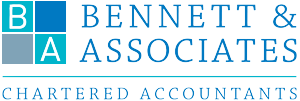Landlords and tenants are both responsible for keeping the property in good condition.
Fair wear and tear
A tenant is not responsible for normal wear and tear to the property, or any chattels provided by the landlord when they use them normally. The tenant is responsible for any intentional damage.
Chimneys
Cleaning the chimney is the landlord’s responsibility. The tenant remains responsible for cleaning the ashes from the hearth. The landlord must have the chimney swept and checked at least annually to make sure it’s safe. (A landlord’s insurance policy for the property will often not cover the property if the chimney is not swept at least annually).
Lightbulbs
Both landlords and tenants can be responsible for light bulbs, as they are not covered by the Residential Tenancies Act. However, if the landlord supplies light bulbs and the tenant takes them at the end of the tenancy, or damages them intentionally, the tenant may be responsible for replacing them.
If the light bulbs remain in place but have blown, responsibility is less certain. Standard light bulbs may be seen as consumables and replaceable by the tenant or may be seen as fair wear and tear and replaceable by the landlord.
Non-standard light bulbs – which may be more expensive or are tricky to fit – may be the responsibility of the landlord. If a light bulb of this kind blows, it’s likely to be treated as fair wear and tear.
Maintaining heaters and ventilation systems
Landlords are responsible for maintaining any heaters and ventilation systems but although landlords are responsible for maintenance, tenants are required to keep the rental property reasonably clean and tidy, and this includes cleaning heat pump filters or heaters installed to meet the healthy homes heating standard or supplied as part of the rental property. Landlords may be required to have appliances such as heat pumps or ventilation systems serviced regularly as part of their warranty conditions.
Landlords must agree before tenants make any changes to the property.
Tenants can’t renovate, alter or add major fixtures to the property unless the landlord agrees. Any changes must either:
• be in line with the tenancy agreement, or
• the tenant must have the landlord’s written consent, but it is important to note that the landlord can’t unreasonably withhold consent.
Before the tenancy ends, the tenant can remove any of their fixtures, unless this would cause irreparable damage to the premises or the agreement from the landlord was conditional upon it remaining and becoming the property of the landlord at the end of the tenancy. Fixtures are things that are fixed in position (such as garden sheds, spa pools, heat pumps, security alarms or lights, clothes lines and panel heaters).
Any fixture put up by a tenant and not removed at the end of a tenancy becomes the property of the landlord. But this doesn’t apply if a different agreement exists, or the landlord has led the tenant to believe that the tenant can remove the fixtures after the tenancy ends.
If the tenant causes damage when removing the fixtures, the tenant should tell the landlord. The landlord should then tell the tenant whether they want them to repair the damage or negotiate compensation.
Minor changes to the property include fixtures like:
• curtains replacing corded blinds
• visual fire alarms and doorbells
• baby-proofing, e.g. a baby gate, cord tensioners or cord cleats for corded blinds
• earthquake-proofing, e.g. securing a bookshelf to the wall.
Exterior
Both landlords and tenants are responsible for maintaining the outside of the house.
The landlord is responsible for outside cleaning and maintenance tasks such as house-washing and gutter cleaning. The landlord is also responsible for maintaining trees, shrubs and hedges as they may require special care or knowledge to maintain.
The tenant can do outdoor cleaning tasks like window cleaning (if the windows are easily accessible, not apartment buildings or multi-level houses) and includes mowing the lawns and weeding the gardens as part of their responsibility to keep the property reasonably clean and tidy. It is a good idea to discuss this topic in detail at the start of the tenancy and note what is agreed on the tenancy agreement to avoid misunderstandings.
Source: Ministry of Business Innovation and Employment
For more information visit: MBIE: tenancy.govt.nz maintaining-the-property


